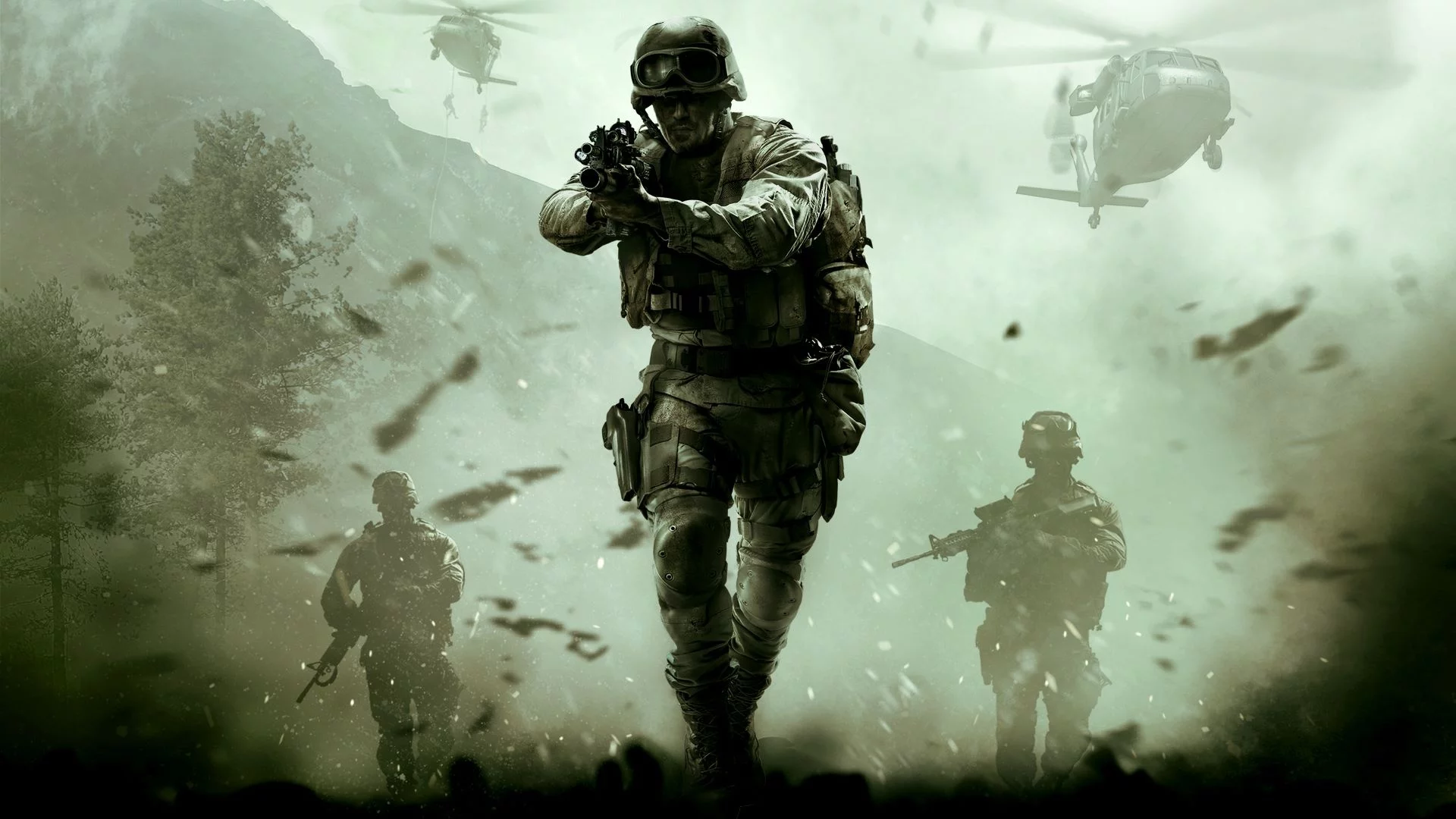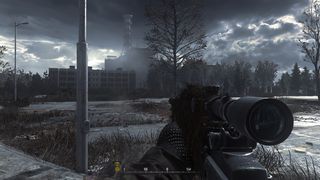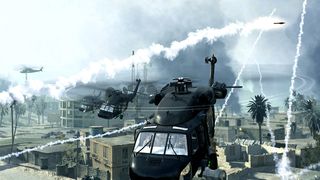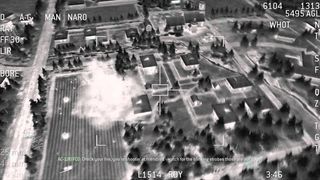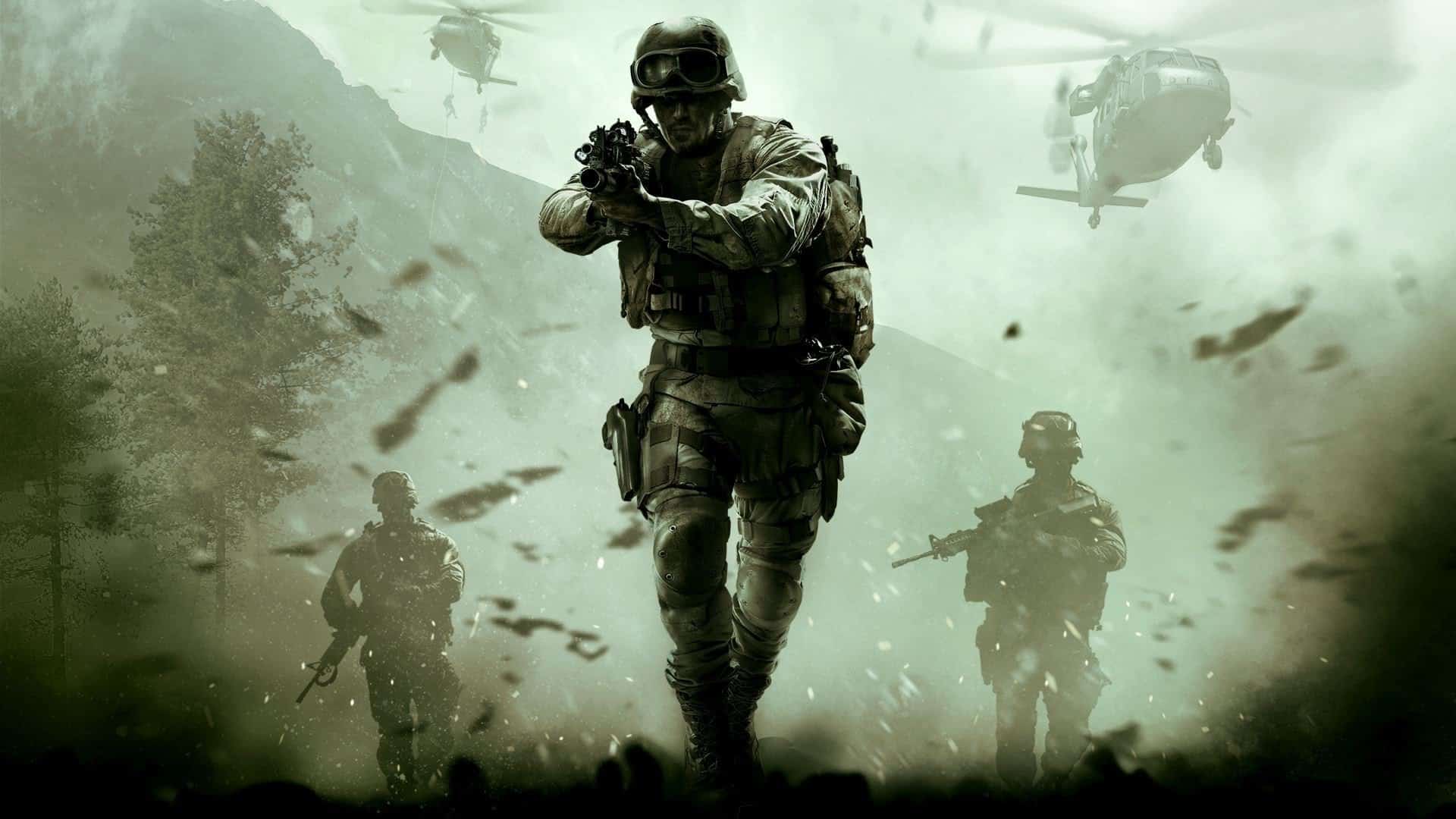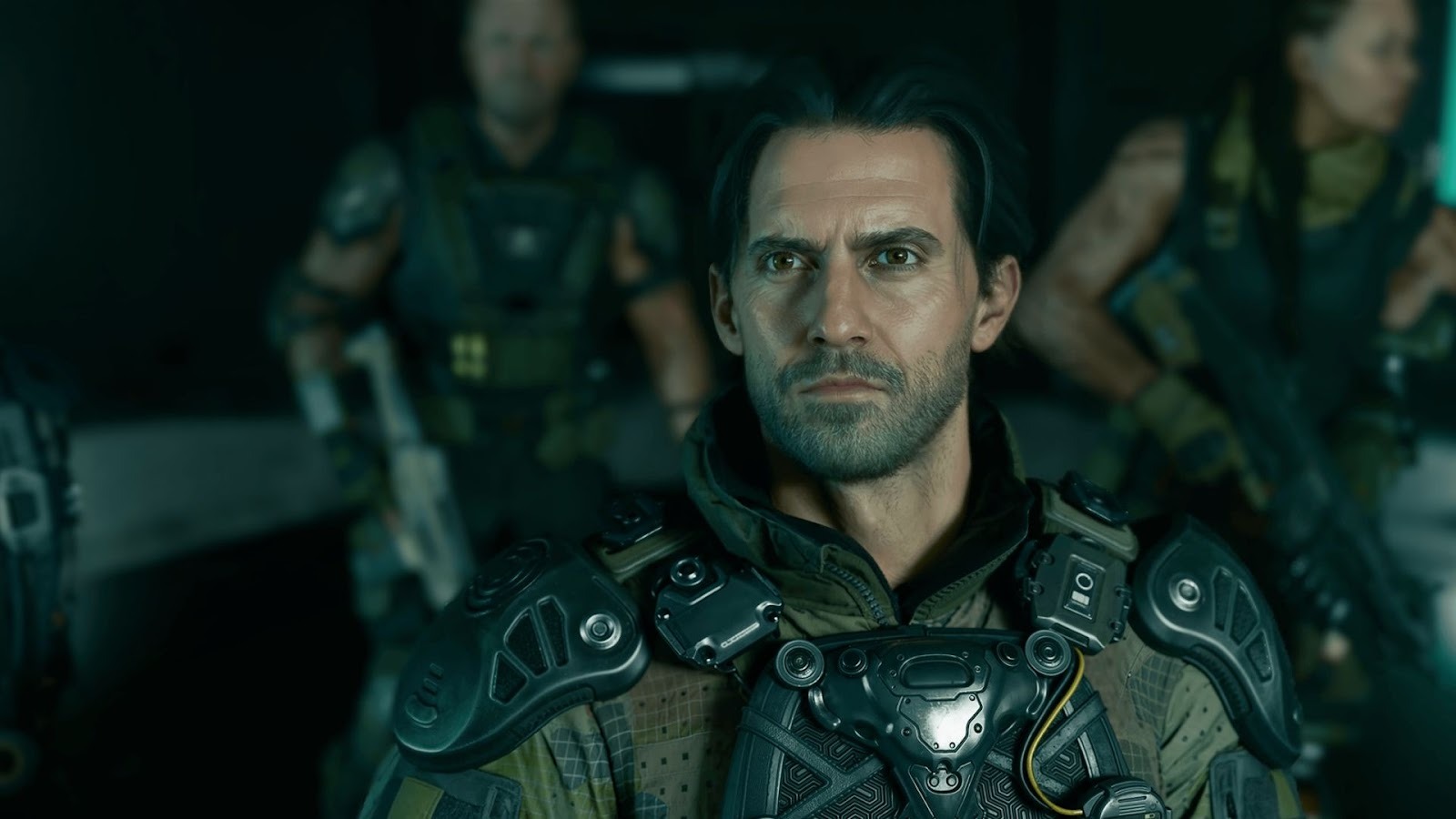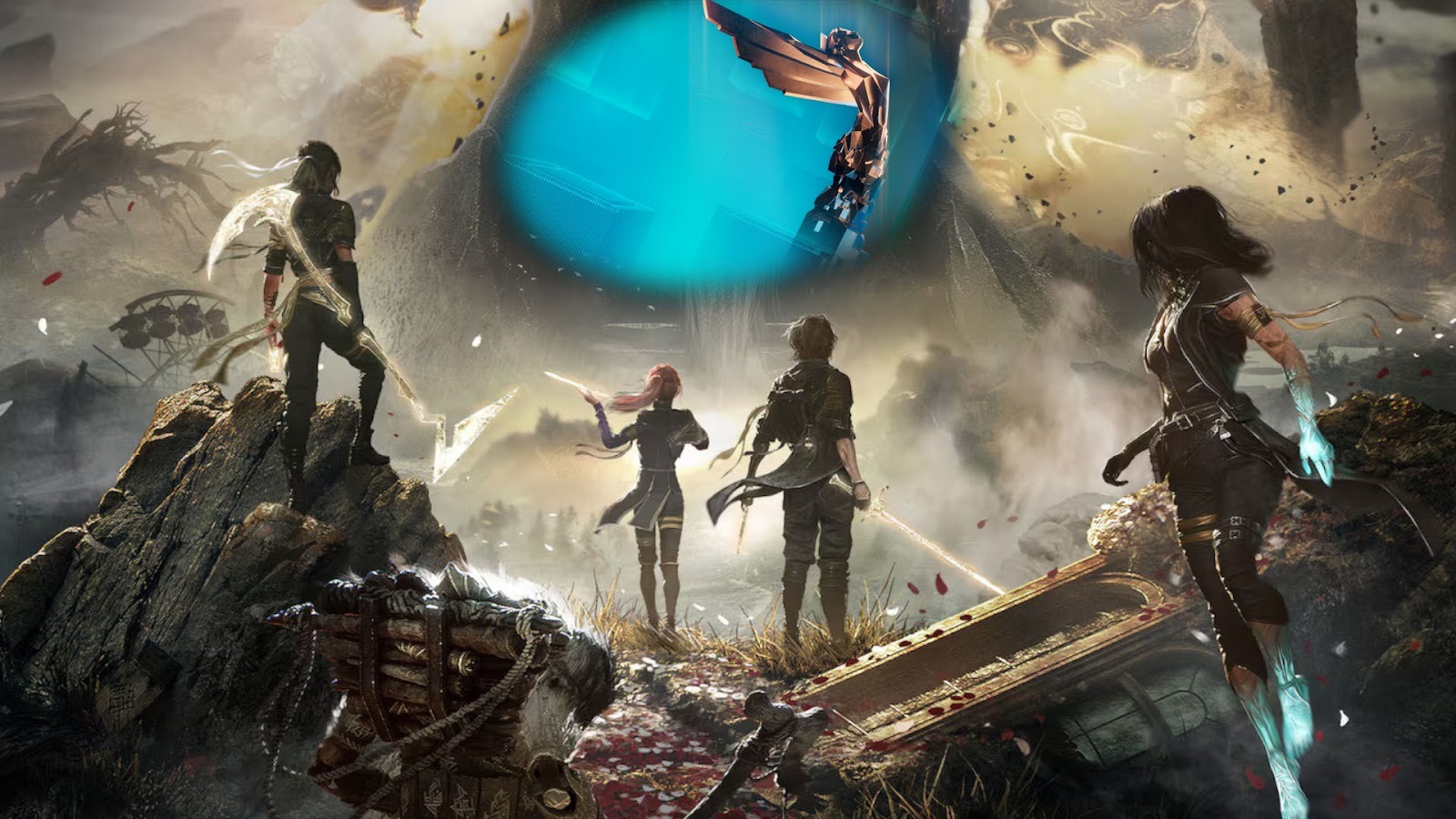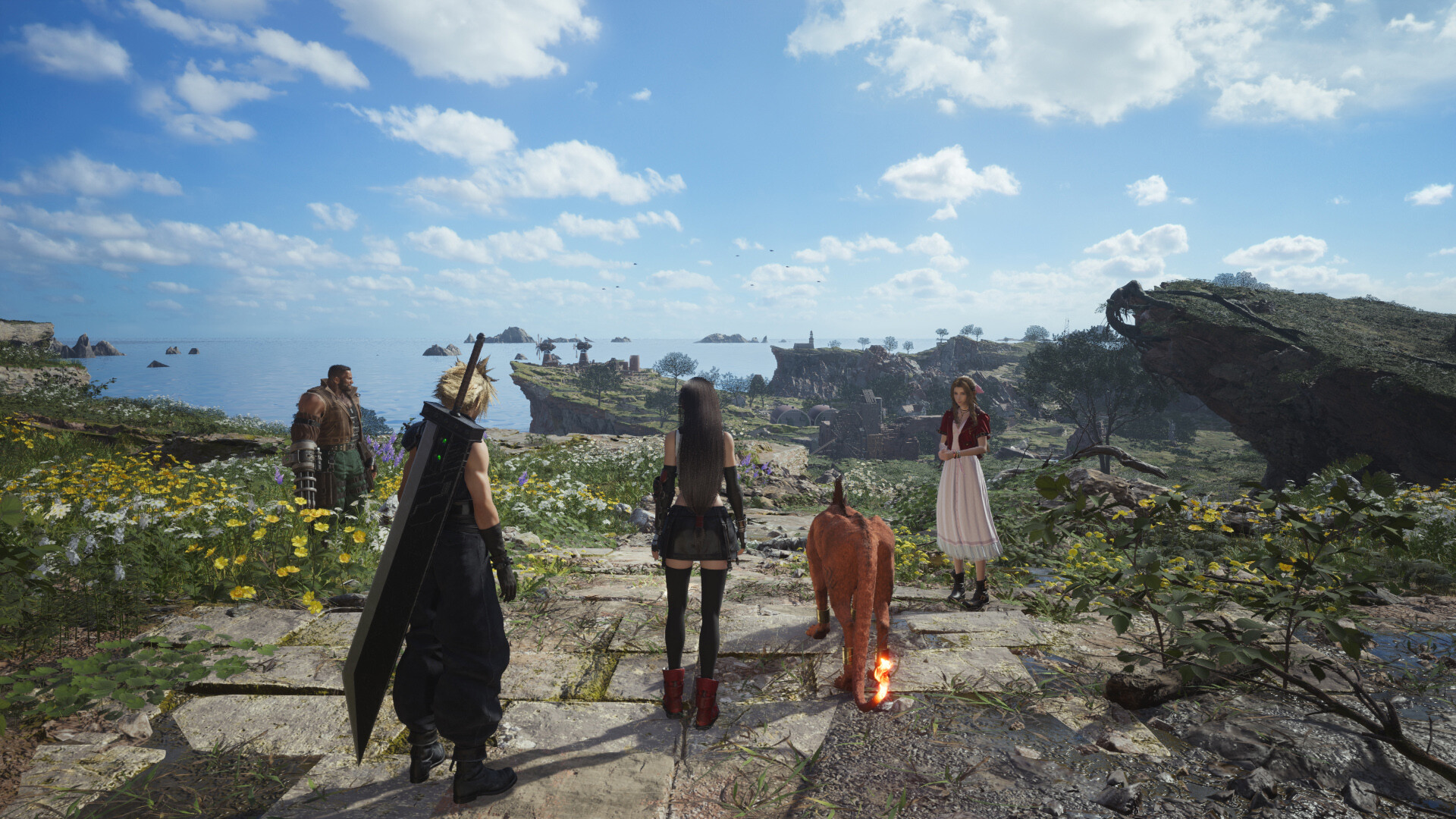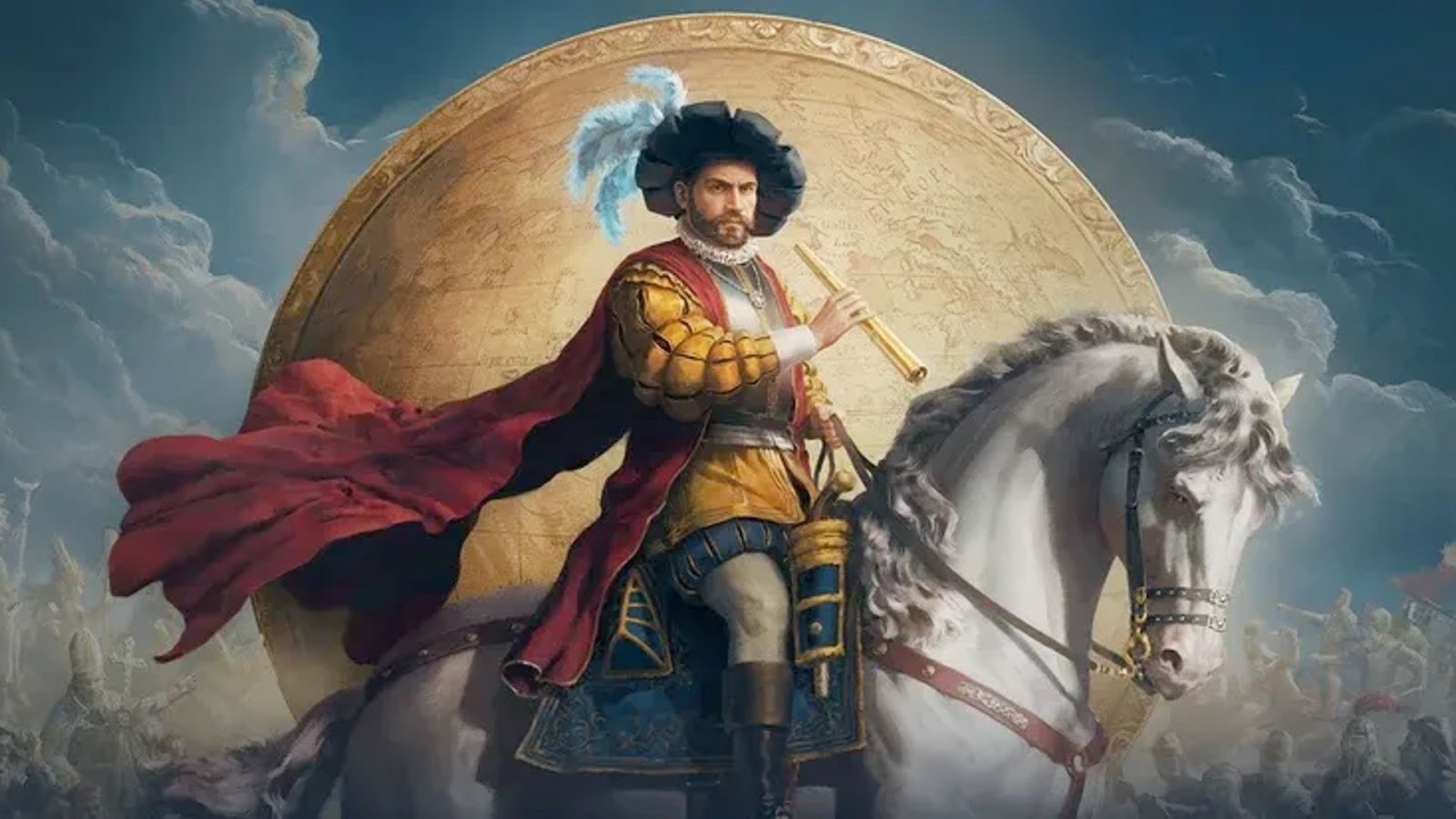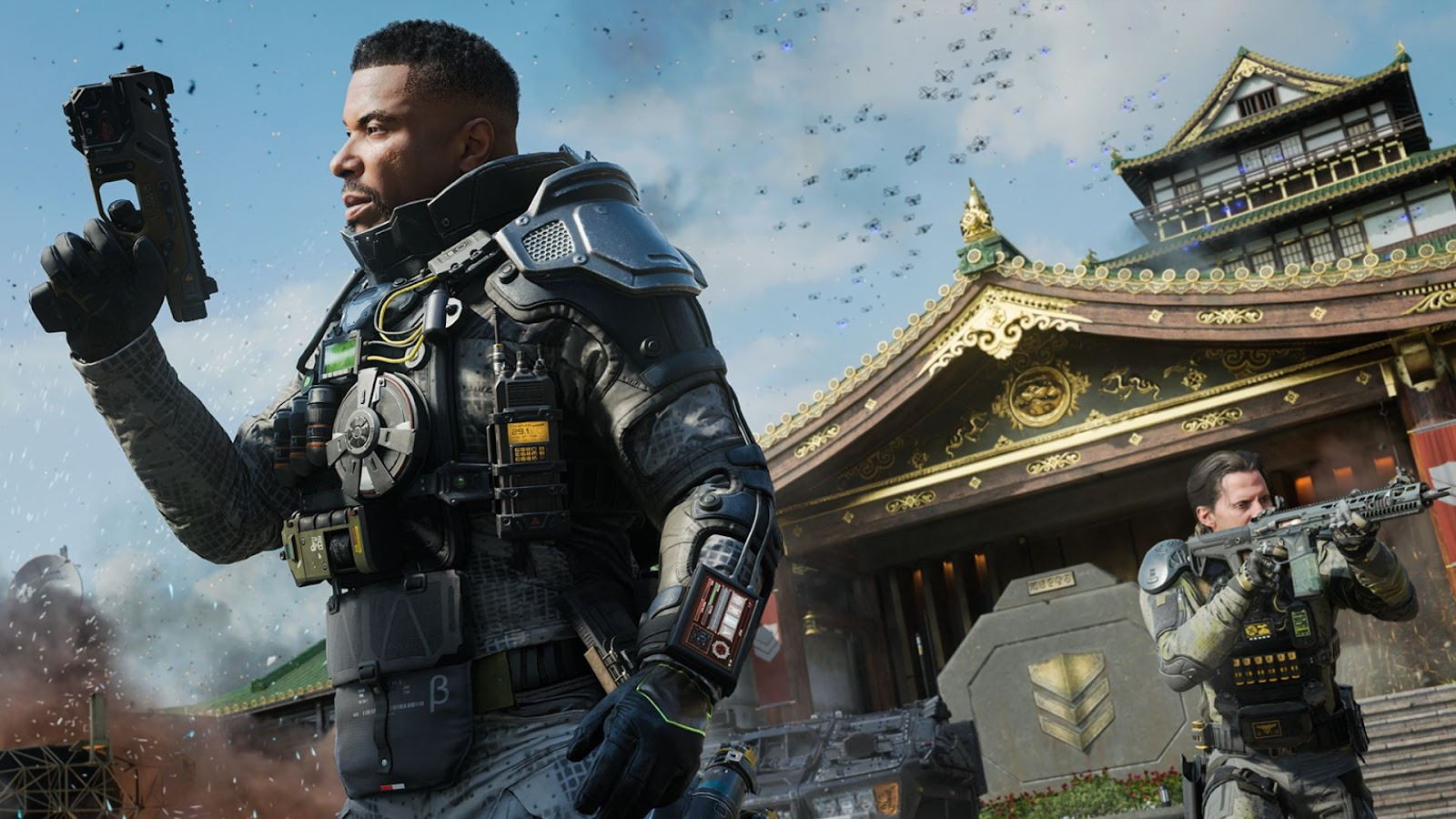You can trust VideoGamer. Our team of gaming experts spend hours testing and reviewing the latest games, to ensure you're reading the most comprehensive guide possible. Rest assured, all imagery and advice is unique and original. Check out how we test and review games here
For a large and fevered patch of players, the most exciting game of the year is the same as it was over a decade ago: Modern Warfare. This time, it’s Call of Duty: Modern Warfare, a title from which publisher Activision has banished all numerical trace. This will be the fourth Modern Warfare game and the seventeenth mainline Call of Duty. The more numbers you stick in front of the word ‘modern,’ the more it lurches toward the future, and anything with ‘17’ on the end seems in need of pruning. (Only Final Fantasy – a series whose name grows more oxymoronic with every entry – can get away with that sort of thing.) But there’s something odd about the retrenching of the title. It’s not that it sounds like a grasp at former glories but that it feels faintly unnecessary, for one simple reason. Call of Duty 4, even now, is warfare at its most modern.
Twelve years on and the twinges are still there, as if I’ve caught the shrapnel of that campaign. Just this month, when I heard about the new HBO show Chernobyl, my mind went not to its star, Jared Harris, with his marvellous face like bespectacled putty, but to Pripyat – the deserted city in Ukraine through which Lieutenant Price and Captain MacMillen skulked and slithered in ‘All Ghillied Up’. That mission – set 15 years before the rest of the campaign, in 1996, amidst the fallout of real catastrophe – remains a singular post-apocalyptic vision in games. The skies are corpse-grey, and the grass is ashen – absent any of the buoyant cheer of Fallout 3, which came out the following year and proposed the brilliant notion that the end of days might be a lark.
Instead, the air is thick with a blend of uneasy odours. ‘Look at this place. Fifty-thousand people used to live in this city,’ MacMillen says, and we hear the faint playground cries of children long beyond rescue. Not that this was ever a rescue mission; the two have been sent to assassinate a political leader, and beneath the sadness of the scene runs an oily current of callous cynicism. They’ve come to a ghost town to fill it with more ghosts. The mission is leaden with grim inevitability; despite being outnumbered, we sense that success is ensured from the coolness in MacMillen’s voice, as he dictates our moves. ‘Hold…’ he says, before we kill a pair of soldiers. Then, moments later, before a daring sprint: ‘Standby,’ pause, ‘Standby,’ pause, ‘Go!’ The tension between commands is one of absolute power pulled taut, like a bow, before being unleashed.
Playing it now (and I recommend going with the original, rather than the remaster, to get a true sense of its stamina) you notice this mood gusting across the game: one of hopeless victory. I’m sure it wasn’t there back in 2007. The game came out in November; in January, the Iraq War troop surge had begun, under the command of the Bush Administration, and 20,000 new soldiers were deployed, the majority of them sent to Baghdad. The operation had the working title ‘The New Way Forward.’ Perhaps back then a mission like ‘Charlie Don’t Surf’ would have felt hot-blooded and heroic, invoking not one but two American war films: Francis Ford Coppola’s Apocalypse Now, from which the phrase is plucked, and Black Hawk Down, which it more or less reenacts.
The latter film, directed by Ridley Scott, came out in 2001, but its narrative plunges into the past. It’s set during the Battle of Mogadishu, in 1993, during which two UH-60 Black Hawk helicopters were shot down, stretching an hour-long operation into an overnight rescue. At the start of ‘Charlie Don't Surf,’ watch how the camera copies Scott’s – a smooth swoop, taking in a bright white sky above blue water. As the fighting shifts into night for the next mission, ‘The Bog,’ it turns feverish, lit up by scarlet flares. But where Scott’s film is less like a victory than like desperate survival, this is domination. Toward the end of ‘The Bog,’ air support pounds and peppers an enemy stronghold, grinding it into rubble, and we realise they never stood a chance.
All of a sudden, the words ‘Charlie Don’t Surf’ – first bellowed by Lieutenant Colonel Bill Kilgore, in Apocalypse Now, who calls in a napalm strike so that he and his squad can surf the nearby waters – take on a richer meaning. Call of Duty beckons you, too, with its exquisite firepower, to make play out of war. Any guilt or sorrow you might feel is made all the more potent for not having your nose rubbed in it. The way in which the game hangs fire and lets its themes sink in is a subtlety to be admired. Whereas a game like Spec Ops: The Line – which came out five years later – borrowed from Coppola by labouring its story with scalding lectures on the delirium of war, Call of Duty 4 made do with a single scrap of dialogue.
Indeed, the game is nothing if not economical, its thrills are composed of two key ingredients: violence and velocity. The helicopters. The hot gleam of the night-vision goggles. The Javelin missiles, which dart upwards and dive down onto the enemy. Even the mission briefings, where we scour the earth through the squint of a satellite. All of it hurtling by at a locked and glossy 60fps. Its missions were matched, in their power to enthrall, by its technical prowess, which delivered on the promise of its name: modern warfare, as we had never seen it, in high fidelity and absolute physicality. It was there. Nothing else would do. It was The New Way Forward.
And yet, the irony of the ‘modern warfare’ subtitle is that it’s as though it sucks the life from what precedes it – coaxing out the dreariness of the ‘duty’ and banishing all trace of the gallant from the ‘call.’ Gone is the romance of France, the horrors and heroes of the beach landings; in their place are cyphers – Sergeant Paul Jackson, of the United States Marine Corps, and ‘Soap’ MacTavish, of the 22nd Special Air Service – who say little and get on with the job. Seven years after the game came out, I remember watching Good Kill, the movie in which Ethan Hawke plays a drone pilot who goes about his work in a shack in the Nevada desert, half a world away from where his missiles land. I drifted back to ‘Death From Above,’ the mission that puts you in the eyrie of an AC-130 gunship and has you scorch the earth from safety.
It may have been a manned craft, but it carried a payload of similar anxieties to those that surround drone strikes, which began in Pakistan, in 2004 – three years before the game’s release. The first thing that hit me, when I played it again, is the genius of the thermal imaging system – which casts the earth below in black and white. The mission is anything but. Everything on the ground looks etiolated, as if its been poured over with white spirit. As you shred the enemy troops, clouds drift across the camera as if it were a conscience. I still can’t shake the affirming chatter of the fire control officer, half drowned by the drumming of the engines, when you strike a direct hit: ‘Good kill good kill.’
Where a Tom Clancy game might fetishise such superior equipment, Call of Duty 4 evokes the banal terror of technology bent toward bloodshed. (Hence why I never felt frustration with a game like The Division 2 for not pursuing its political themes – which always felt to me like bemoaning a bull for not charging into a china shop.) Call of Duty 4 says more in its wiry, fraught campaign by putting power in your hands and revealing its lack of effect. The campaign draws to a close, misdeeds are swept under the rug, and the world seems more stained than when you set off. Even a man with a name like Soap can’t scrub it clean.
No wonder Call of Duty 4 still feels freshly hatched – the way it hotfoots between the near past and future, bringing in bursts of recent conflict while gazing with uncertainty to the horizon, blurs its place in time. Its missions scratch a nerve half-buried in the soil of our psyche, tinged with movies and tainted by history. Whatever timely troubles lie in the crosshairs of the new game, it has its work cut out for it; the original, if anything, has only sharpened in the 12 years since it grabbed and shook us. Its lacing of irony has only ripened. The first words you hear, when you start the campaign, are ‘Good news first: the world’s in great shape.’ I nearly laughed.
Call of Duty 4: Modern Warfare
- Platform(s): macOS, Nintendo DS, PC, PlayStation 3, PlayStation 4, Wii, Xbox 360, Xbox One
- Genre(s): Action, First Person, Shooter
